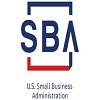Strategies to Meet the Expectations of FDA Device Policies
02/06/2020
Category: Other Blogs
With the advancement of technology, a wide variety of medical devices that have increasing complexity and diversity should also increase the benefits to patients. In this competitive global market, it is a balance of advertising and the procedures involving regulatory compliance. It also may happen that a product may require restructuring. In this scenario, medical device consulting services serve the role of an advisor and can help guide at every step to reduce resource waste.
Frequently, medical device consulting firms are contacted by companies when their product fails any audit. This could have been avoided if a consultant had been employed to take care of the proposed product from the earlier stages of production through the period when it is successfully launched. After launch, medical device consultants can assist in tracking to determine whether the product is performing well in the market and meeting customer expectations.
The following steps are adopted by some consulting firms:
Uniqueness criteria fulfillment: There likely should be some unique features that will attract consumers. The features can simply include cost and quality. A consultant can take care of proper research, and suggest a constructive plan of action for the market and the needs for alternatives.
Also Read: Principle of Quality Assurance of a Drug – FDA Validation
Leave a good impression with FDA: During FDA meetings the company asks critical questions that are submitted in a package to FDA. The letters and package should be well thought out, appropriate and easy for FDA to read. Without proper experience, it is difficult to get the answers to those questions that will benefit the advancement of the project. Consultants can conduct mock meetings with the company representative(s) or represent the company in their stead. Submissions for the 510(k), De Novo or PMA should be professional, on target for FDA needs and follow the required formats.
Weighing the risk factor: Risk management analyses can also be done by medical consulting firms. They can research literature and use safety databases to record the human interaction with the product as well as related-products. This type of information should be periodically reported to FDA as safety reports and/or annual reports.
Acknowledge of quality standards: Good Clinical Practice (GCP) and Good Manufacturing Practice (GMP) are two standards that the consultants can review or advise implementation the operating procedures for clinical trials and manufacturing, respectively.
FDA registration: A company must get annual registration from FDA for production and distribution. FDA periodically checks the manufacturing locations of medical devices and can scrutinize the history and manufacturing of all the devices that are produced from a particular location.
Evaluating the classification of a device: At the beginning of FDA interactions, a particular device needs a classification among class 1, class 2, and class 3. Consultants can classify the proposed medical product on certain parameters and if necessary approach FDA for the classification.
tagging: medical device subsystem consultants


